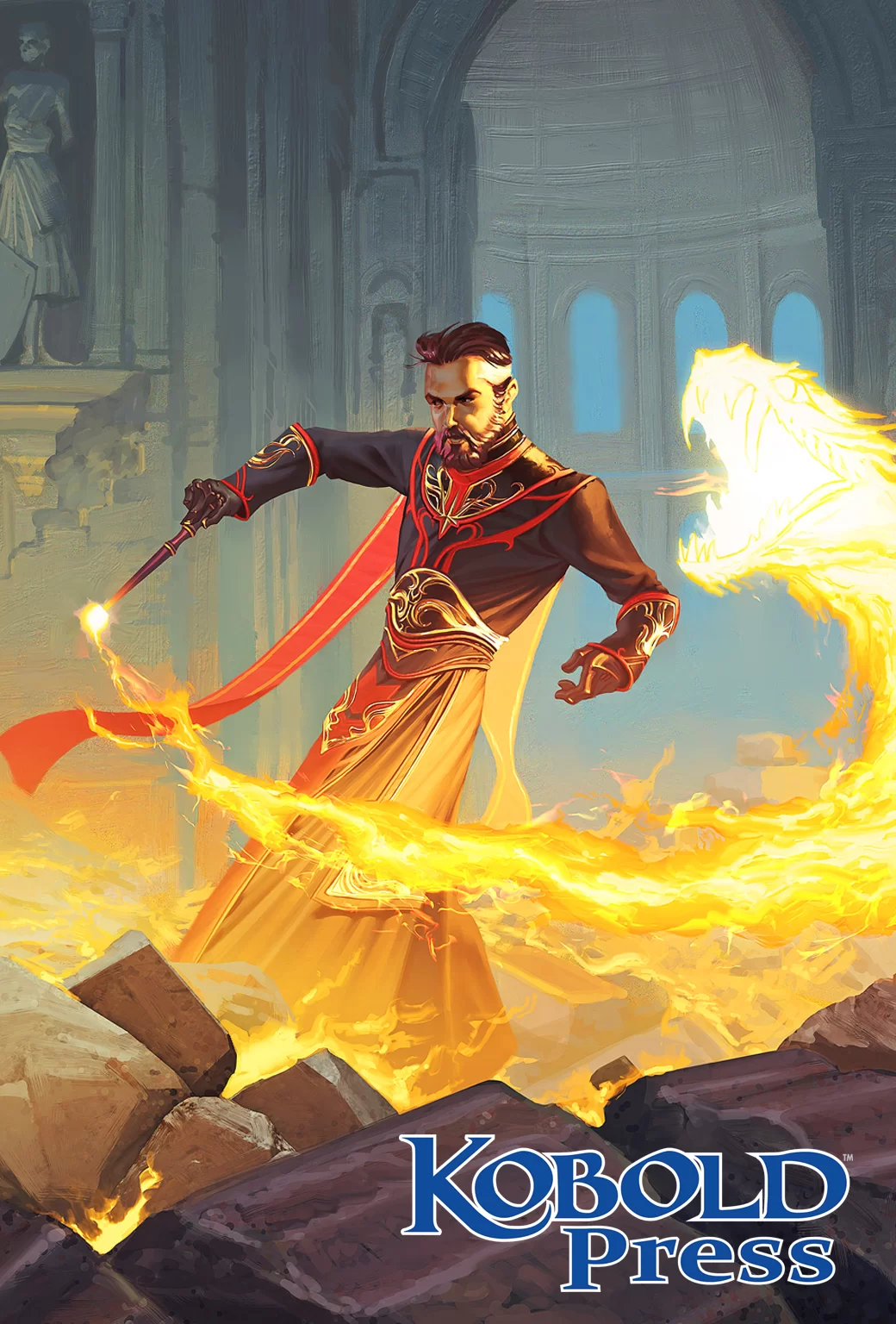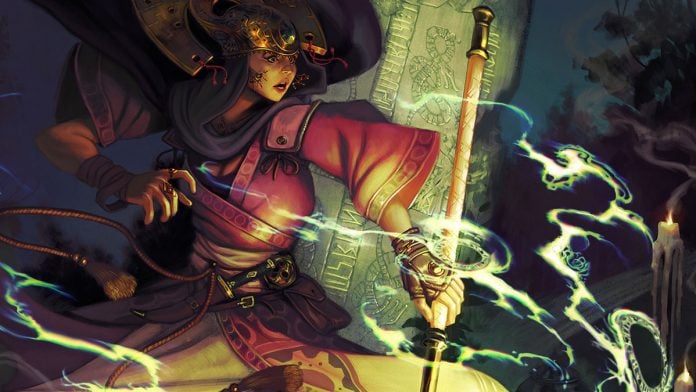D&D: Kobold’s New ‘Black Flag’ Wizard Makes Feats Better, Bladesinging Worse


What makes a Project Black Flag Wizard different from one in vanilla 5th Edition? Turns out it’s all about rings.
With the latest playtest packet for Project Black Flag, Wizards and Wizard-accessories step into the spotlight for the updated “Core Fantasy System.” What does that mean, exactly? In this case, it means that Wizards got a suite of new feat-like abilities called Talents, as well as some re-envisioning of spells.
Not, like, in the way that you cast a spell. But with the reimagined Black Flag Wizard, Kobold Press has boldly decided to fix one of 5E’s unwritten problems: the difference between spell levels and class levels.
If you’ve ever had to break someone’s heart by telling them that just because they’re a 2nd-level character, they can’t cast 2nd-level spells, and then descended into a sort of existential spiral as they ask you, plaintively why that’s the case, and you try and explain and realize that 5E is more propped up by 50 years of how people remember playing D&D than it is the actual rules. Kobold looks to change at least some of that with a new innovation: calling them rings instead of levels for spells.
Project Black Flag Wizard – Rings and Things
Aside from changing the name of levels to rings, so that now you get 2nd-ring spells at 3rd level, for instance, there’s not much that’s actually different about the basic Wizard. They get all the same stuff, which is Arcane Recovery, and spells at every odd-numbered level. But they also get Magic Sense, which is a free Detect Magic that you can activate (proficiency bonus) + 1 times per day.
Which mostly just eliminates the need for the Detect Magic spell in casual use. Where the Wizard really stands out, for good and bad, is in the subclasses.
First up is the Battle Mage. This is an analog to the Bladesinger Wizard out of 5E. It grants the Wizard access to Martial Talents, though that’s nothing special at all, the Magic Talents are better by a long shot. And in place of Bladesinging, there’s Spell Ward.
Spell Ward, like Bladesinging, increases your Armor Class, and it also gives you resistance to damage. But that’s it. No increased movement, and no advantage on random skill checks. There’s no bonus to Concentration checks, but that’s largely unnecessary since one of the Magic Talents just eliminates the need to roll for those anyway.
But what really sinks Spell Ward as a feature is that it ends if you don’t cast a spell of 1st-ring or higher on your turn (or before your next turn starts, in the case of reaction spells). Which means you can’t sustain it.
You can, however, make yourself and any allies you can see immune to one of your own spells’ damage, though, which is great because now you can ground zero fireball with impunity.
Then there’s the Cantrip Adept. This is an adaptation of the subclass from Kobold Press’s Tome of Heroes for 5E, which shows how easy it is to convert existing options to Black Flag. And as far as these go, it’s not too bad.
You can quicken a cantrip up to (proficiency bonus) times per day, allowing you to dual-cast cantrips for a while. You also get two cantrips from any spell list, Arcane, Divine, Primeval, or Wyrd. And at 7th level, you can add your proficiency bonus to the damage roll of any arcane cantrips you cast.
Nothing special, but nothing to sneeze at either.
What do you think of the Black Flag Wizard?









